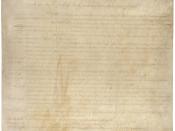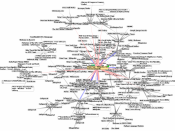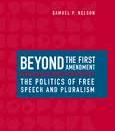The World Wide Web enables students to access a wealth of information and create communication portals with a click of a mouse. Email is quickly becoming a primary form of communication between students, faculty and parents. A main focus is management of internet and email usage both on and off campus to ensure students are accessing and using the internet in a non abusive and educational manner. This paper will discuss major court cases that have steered the direction in which educators manage internet usage and define ways educators and administrators can protect the educational environment from the abuse of internet usage though well defined policies and practices.
Setting PrecedenceThe use of technology in the classroom has expanded the learning capabilities of students and opened up new and interactive ways of teaching for educators. But by doing so, students have also found a new way to communicate their frustrations with other students, teachers, and administrators with the thin veil of anonymity that the internet provides.
But does this anonymity truly exist and does freedom of speech give them the right to communicate in a manner they would not be able to do verbally in the school. Do educators have the authority to punish students who abuse technological privileges or are they in jeopardy of violating the studentÃÂs right of free speech?The Tinker v. Des Moines Independent Community School District (1969) is used as the basis of evaluating cases of Internet free speech. ÃÂThe Tinker precedent states that the First Amendment does not protect speech that disrupts class work or involves substantial disorder or invasion of the rights of othersÃÂ(Waters, 2008, p. 2). Two other cases used for evaluating Internet free speech are: Bethel School District No. 403 v. Fraser (1986) for the use of harsh, vulgar or lewd language, and...


